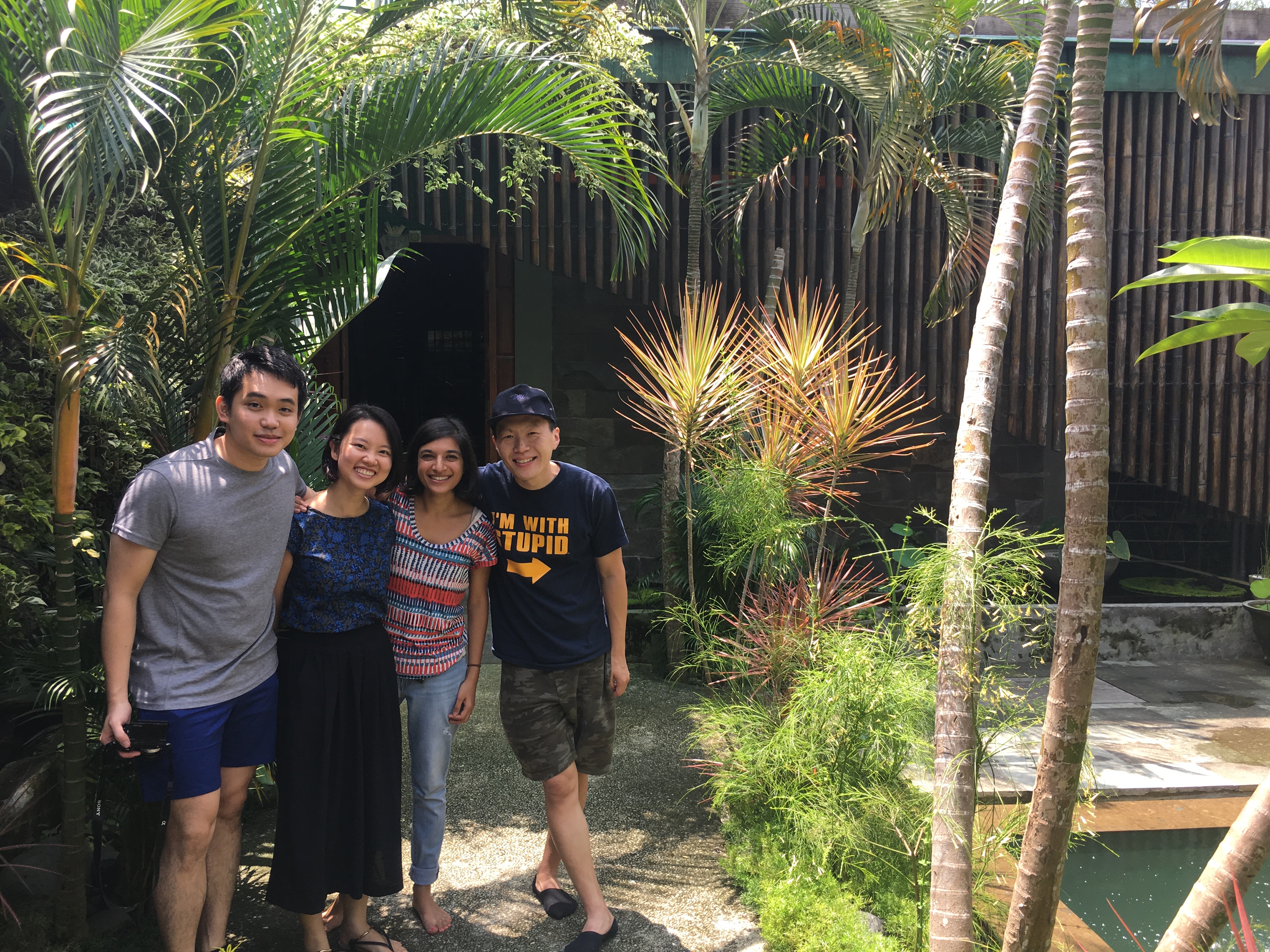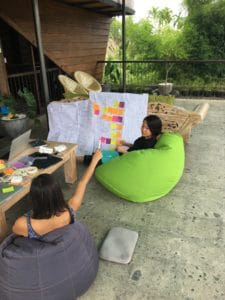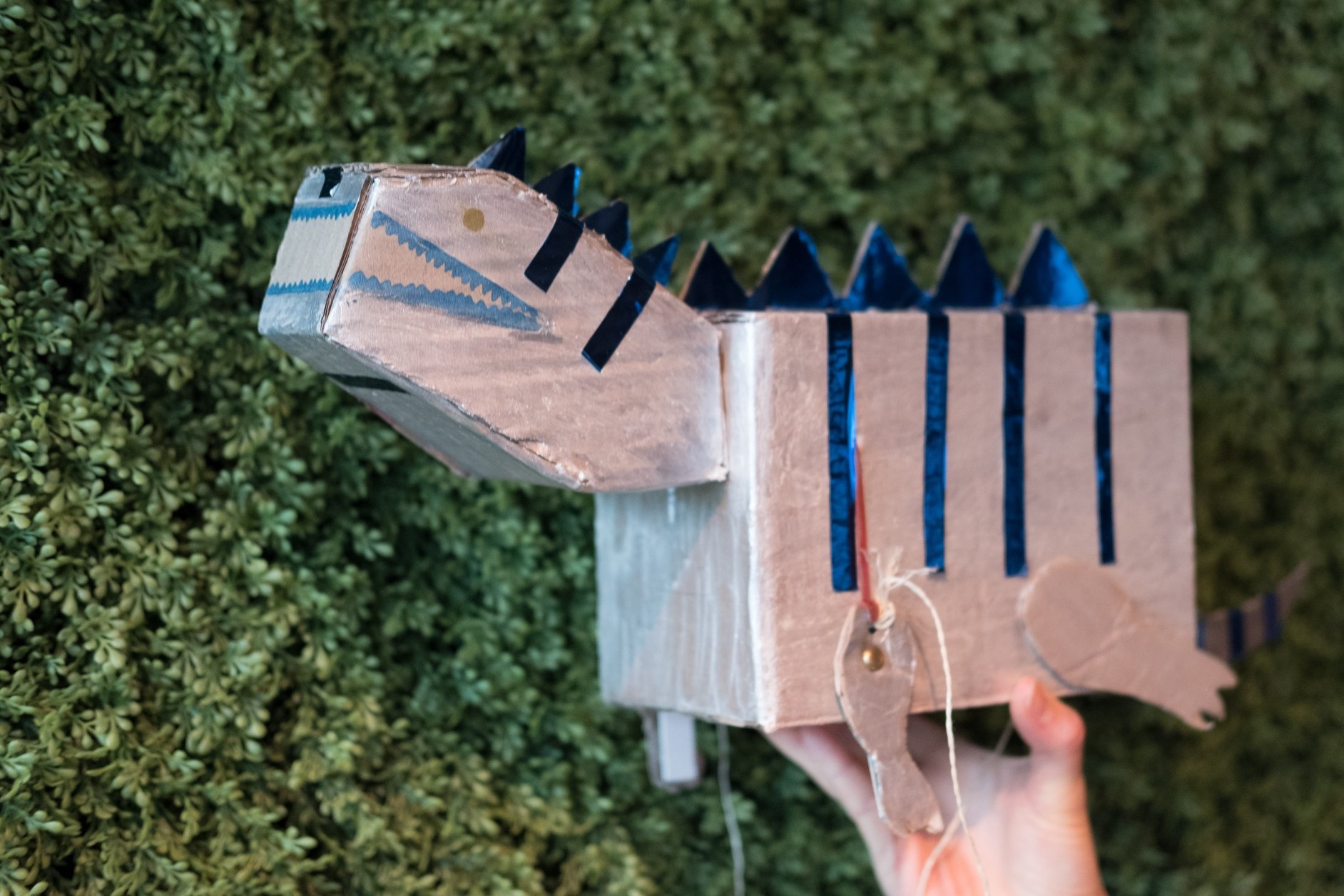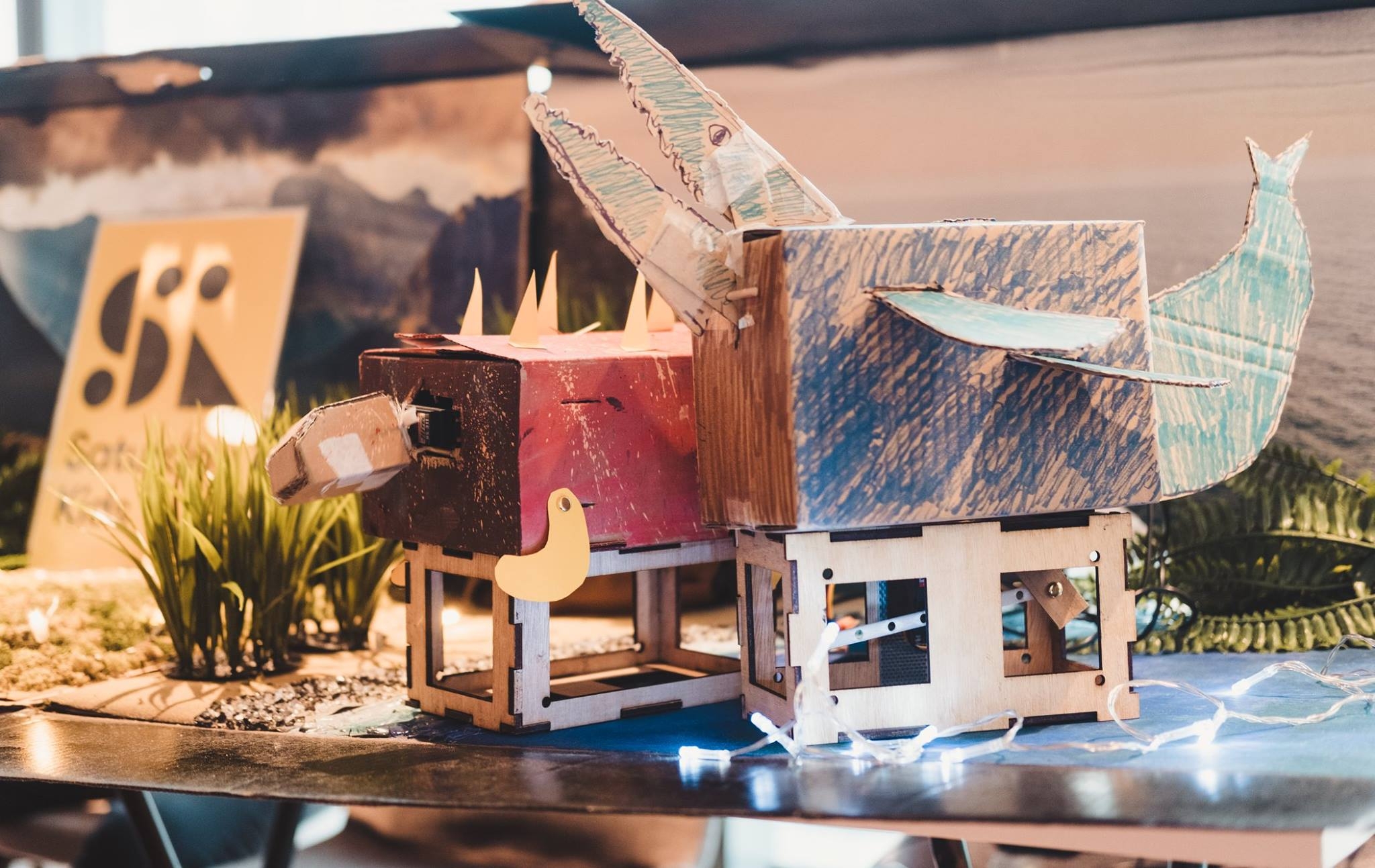
Asking Ourselves Why We Exist As A Business
It’s so easy to be caught up in the day-to-day running of the business that we forget to ask ourselves important questions like why we exist, and why we do what we do. So in January the Saturday Kids team decided to go on a 10 day working holiday in Ubud Bali to spend time together and ask ourselves existential questions about the business. We have noticed new kids coding schools popping up every month and we really needed to ask ourselves how we are different and whether we should continue running Saturday Kids like it’s business-as-usual.

After hours of discussion and debate, one thing became clear. Saturday Kids needs to be much more than a digital literacy school for kids. Sure, we teach kids coding, design, engineering, robotics etc, but any school worth its salt can do that. Beyond technical skills, we need to get kids to learn to be curious, inventive and resourceful.
Curious – going out to search for knowledge, finding out about the world around them, asking questions…
Inventive – Imagining what’s not been done, putting different things together and seeing something new, not afraid to fail, experimenting and trying stuff out, making something people want, creative confidence, unconventional…
Resourceful – finding what they need to make what they want, ability to find quick and clever ways to overcome difficulties, persuasiveness and ability to work with people, grit and resilience…
Learning How To Learn
Fundamentally, we need kids who question status quo and imagine the future. Too much of mainstream education is rooted in the past and the present. It’s far more important that we equip kids with the skills to shape the future. The challenge is that technology is evolving so fast we cannot anticipate what jobs will exist twenty years from now, and what skills our children will need in order to play a meaningful role in future societies. The futurist and author Alvin Toffler came up with the answer in his 1970 book Future Shock.
Tomorrow’s illiterate will not be the man who can’t read; he will be the man who has not learned how to learn
Learning how to learn. That’s the key to the future. Kids who learn how to learn become curious, inventive and resourceful human beings who can make a meaningful impact on the world. Learning how to learn is a prep course for the future. It is the key that will replace old ideas, unlock possibilities and invent self-driving cars that fly in the sky. Here’s another passage from Future Shock that implores us to transform education to get young people ready for the super-industrial revolution.
‘My name is Charles Stein. I am a needle worker all my life. I am seventy-seven years old, and I want to get what I didn’t in my youth. I want to know about the future. I want to die an educated man!’
When millions share this passion about the future we shall have a society far better equipped to meet the impact of change. To create such curiosity and awareness is a cardinal task of education. To create an education that will create this curiosity is the third, and perhaps central, mission of the super-industrial revolution in the schools.
Education must shift into the future tense.
The tragedy is that this was written nearly 50 years ago and mainstream education today is still largely the same as in 1970. Saturday Kids exists to change that.


